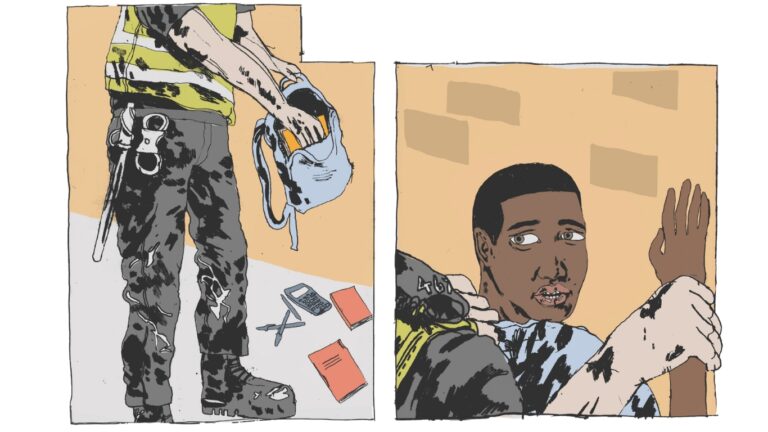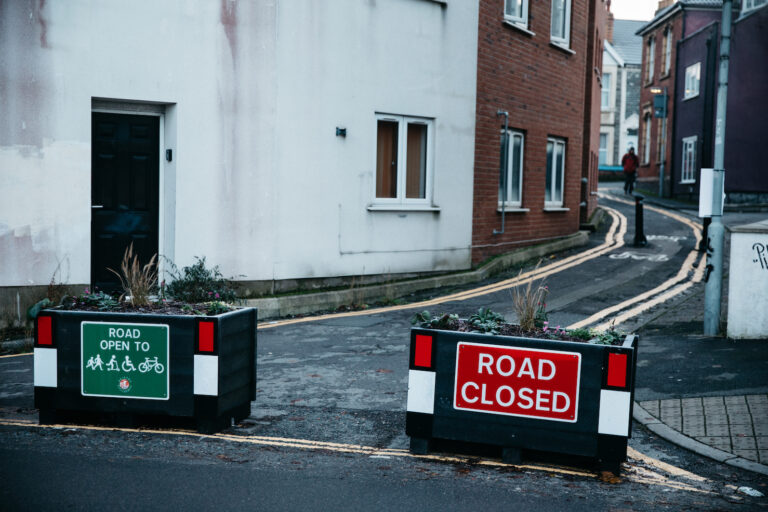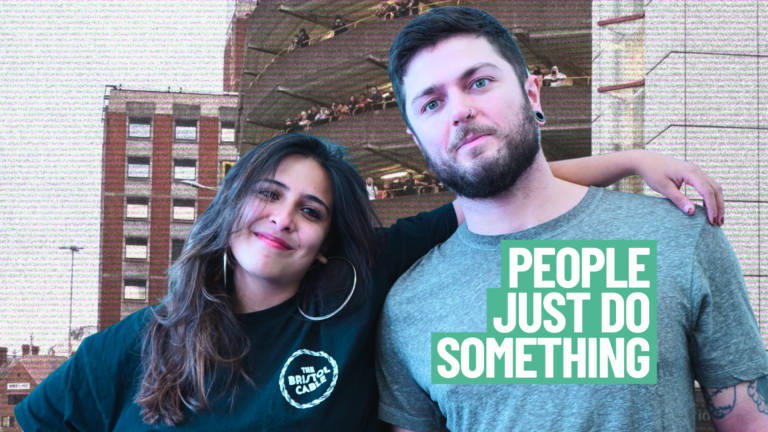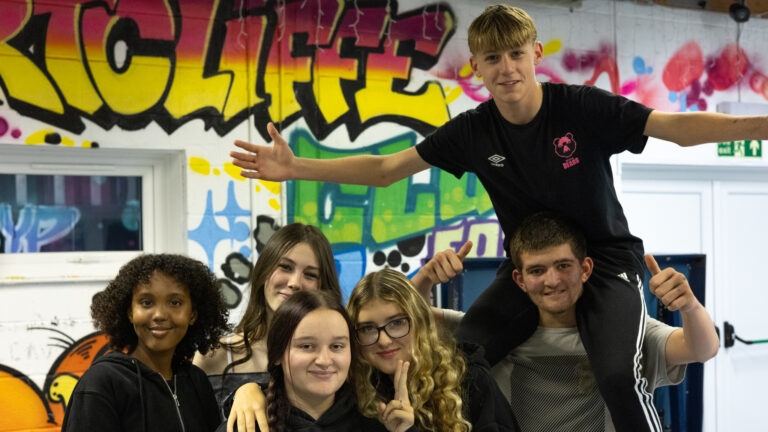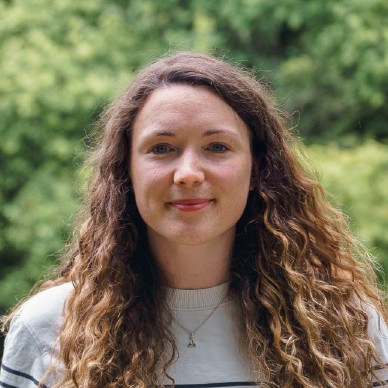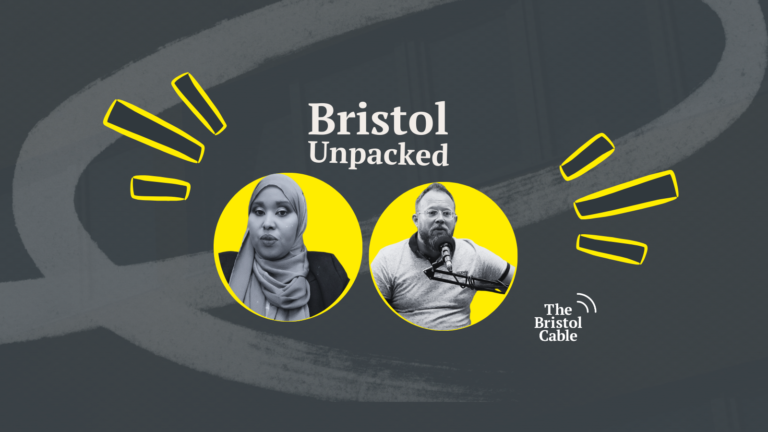Bristol local election candidates debate rent controls, mass transit and missing net zero goal
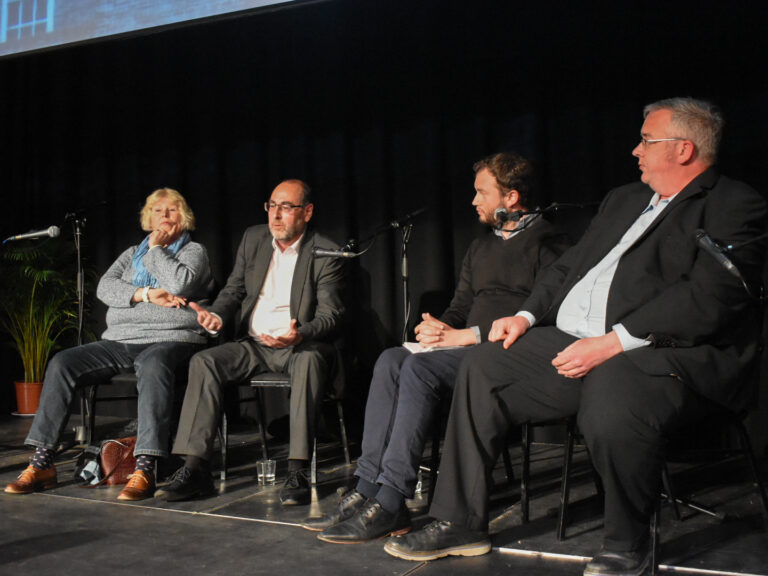
Leading candidates in the upcoming local elections in Bristol faced questions over rent controls, mass transit and missing net zero goals in a dramatic hustings. They gave their contrasting views on housing, transport, knife crime – and even deporting people to Rwanda.
The two likeliest candidates to lead Bristol City Council after the local elections – Green Tony Dyer and Labour’s Tom Renhard – argued about the key issues facing the city, in front of a packed audience at a city centre youth club. They were joined on stage with two potential kingmakers, Tory Mark Weston and Lib Dem Jos Clark, who could play a deciding role after voting day.
Voters will head to the polls on Thursday 2 May to decide which party should run the city council, with either Labour or the Greens likely to be the largest group but falling short of a majority. Their plans were explored in a hustings hosted by the Cable on Monday 29 April. The lively discussion was chaired by journalist Neil Maggs, who also grilled the candidates in special series of Bristol Unpacked, which you can listen to here.
Labour has pledged 3,000 new council homes over the next five years, and plans to set up a council-owned housing company, focusing on temporary accommodation. The Greens also back creating a new housing company, which will allow them to build even more new council homes on top of the 3,000 ones already planned.
Conservatives say more housing needs to be built just outside Bristol’s borders, with a regional approach. This almost happened, until a fallout between South Gloucestershire Council and the West of England metro mayor. Liberal Democrats voted against the latest Local Plan, which sets the overarching vision for housing development, opposing plans for hundreds of new homes on the countryside in between Brislington and Keynsham.
Conservative Councillor Mark Weston said: “We should be trying to develop with our neighbouring authorities strategic housing across borders. We can put in new transport for it, and try and share the burden. Let’s face it, housing doesn’t just stop at Bristol’s border. The three councils and the metro mayor need to sit down and develop a sub-regional approach.”
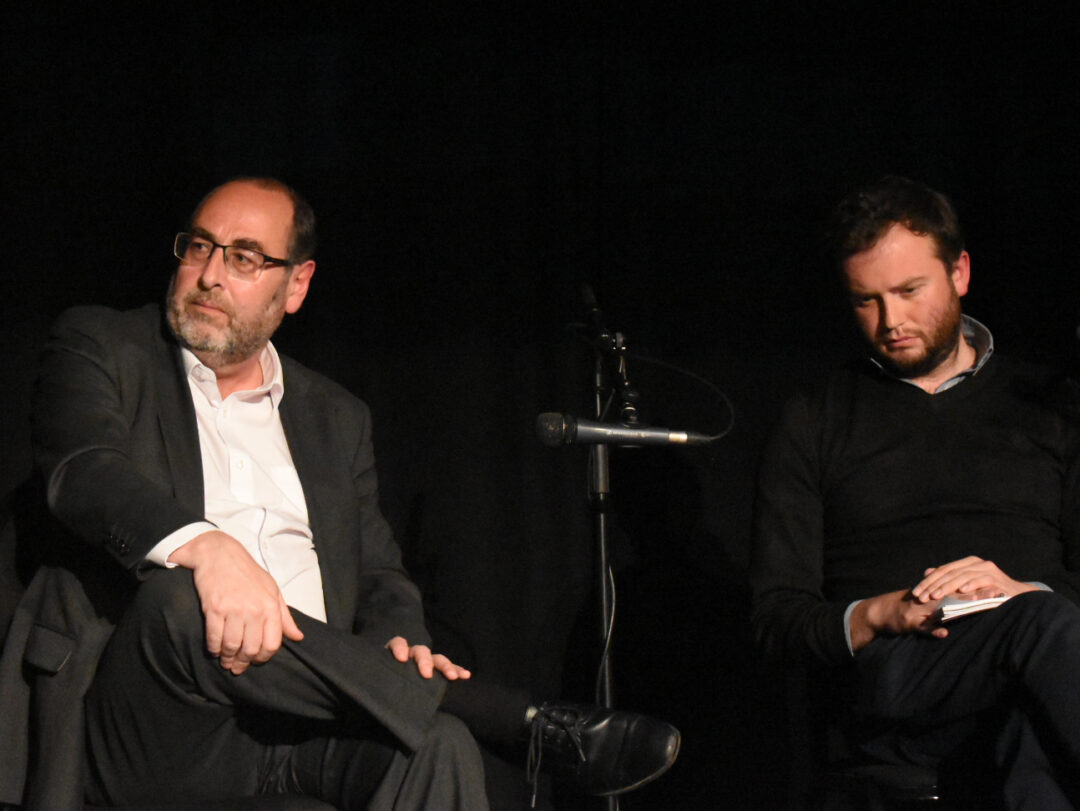
Both Labour and the Greens have pledged to lobby the government for new powers to control rents, given soaring housing costs. Liberal Democrats say rent controls were “not high on the agenda”, while Tories opposed the plan, saying they could lead to fewer homes available to rent. Controls could cap how much landlords could increase rents, potentially linked to inflation or wages.
Tom Renhard, Labour councillor for Horfield, said: “There is a potential impact on housing supply and we have to look at that. You have to really think these things through. We’re going to do that work thoroughly and properly, and we’re working with Policy Bristol [at the University of Bristol] to take those next stages forward.”
Greens have often been criticised by Labour for opposing new housing developments. Green Party councillors on both development management committees have sometimes voted against granting planning permission, due to a lack of affordable housing, harm to the environment, or even because some buildings are perceived as too tall.
Tony Dyer, who represents the Greens in Southville, said: “We’re not elected to just be nodding dogs, nodding through every single development. We’re supposed to ask questions, and if ward members have concerns about developments happening in their wards, then they need to respond to those concerns. Planning committees need to make decisions on the evidence, not political considerations.”
As well as housing, another main issue affecting Bristol is the unreliable public transport network and severely potholed and congested roads. While the West of England Combined Authority is responsible for strategic transport, the city council still plays a major role in how people travel around Bristol. One recent scheme, the Westlink green minibuses, came under criticism.
Brislington West Lib Dem councillor Jos Clark said: “Those Westlink buses should be a smart car, because has anybody seen a Westlink bus with more than one passenger? I sure as hell haven’t. We’ve got 16-seater buses going around the city with one person in maximum, and the majority of the time they don’t have anybody.”
Labour’s big policy on transport in these local elections is bringing buses back into public ownership. This would depend on Labour also winning the general election, as currently councils aren’t legally allowed to set up new publicly owned bus companies. Renhard wouldn’t commit to continuing mayor Marvin Rees’s stalled plan of a mass transit network with underground rail.
He said: “We want to be led by the evidence in moving forward with mass transit. I am not a transport engineer so I’m not going to sit here and pretend I have the expertise on what our transport system should look like. We need to get on with looking at what the evidence says and then make some decisions.”
Tories said an underground network was unlikely due to the high costs, and said a tram network, favoured by the Greens, was also “not going to happen”. Weston instead favoured new train stations on existing lines, like in Henbury, part of his ward, and St Anne’s.
Greens want to introduce a workplace parking levy, charging employers in the city centre for every employee who parks at their place of work. Dyer said this has been used in Nottingham to fund a “decent public transport system”, including a tram network.
The politicians agreed that Bristol would not reach its target of net zero carbon emissions by 2030. Dyer said laws and a lack of government funding were standing in the city’s way of tackling climate change. Renhard said the council could be able to reduce its own emissions to net zero, but a remaining challenge is retrofitting council homes to improve energy efficiency.
On knife crime, Labour is opening a giant new youth club on the edge of Knowle West and Hartcliffe. But their record in power came under fire for focusing on just one large club, at the expense of smaller centres spread throughout the suburbs and estates. The Youth Zone’s location was chosen to sit between communities and address some of the postcode rivalry previously seen in parts of south Bristol.
Dyer said: “[Knife crime] is getting worse. It’s starting to feel like when I was growing up in Hartcliffe. If I hadn’t got involved in a youth club, if I hadn’t been dragged into a youth club and given a punching bag, then I probably wouldn’t be sitting here tonight. But there is no way I would have gone to youth provision, however good it was, in Knowle West.”
The local elections candidates were also asked about public toilets, community energy schemes, and support for refugees. The government’s plan to deport people who entered the country illegally to Rwanda was criticised as “shameful”, by Dyer and Renhard. But Weston backed the controversial plan, which could see people fleeing war-torn countries like Afghanistan deported from this July.
Weston said: “I’m afraid I agree with it. We need to look very careful at providing a deterrent to people entering the country illegally. We have people at the moment profiting from basically murder, with drowning people in the Channel. But when they’re here, people need to be treated fairly. One of the best things we could try and do is teach them English, if possible.”


